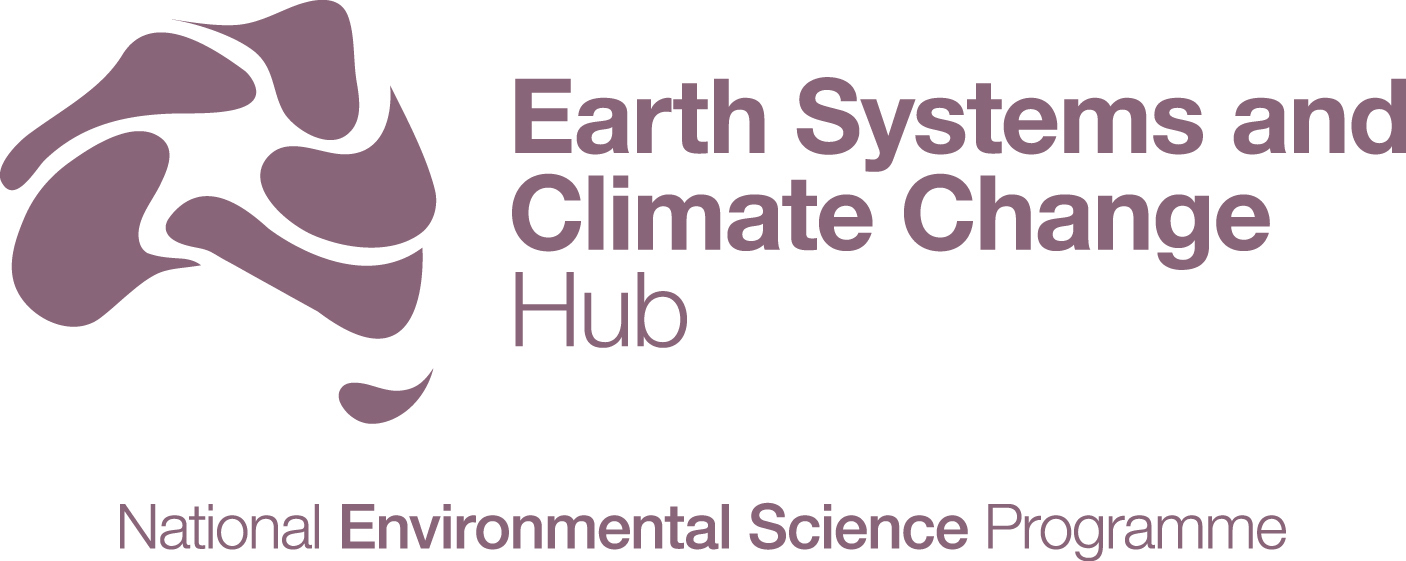by Sonia Bluhm (Knowledge Broker | NESP Earth Systems and Climate Change Hub) The Earth Systems and Climate Change Hub is now reaching middle age (but no midlife crisis in sight!). Since its inception in 2015, the Hub has worked to build a collaborative community among its partner organisations; the Bureau of Meteorology, CSIRO and Australian universities including the University of NSW, ANU, Monash University, the University of Melbourne and the University of Tasmania (all involved in CLEX).
This year we have continued to build on this collaboration, such as though the implementation of our PhD Affiliation Initiative. This initiative provides opportunities for PhD students from across the Hub’s partners to interact with stakeholders, including through the Hub’s Young Professional events. These events bring together early career climate scientists with young professionals from across industry and government to consider future climate challenges for Australia. You can read about a young CLEX researcher’s experience at one of the Hub’s recent Young Professional events here.

From the outset, a key focus of the Hub has been stakeholder engagement and ensuring the Hub’s science and information is accessible, usable and relevant to key Australia sectors, governments and industries. Such activities have ranged from building our engagement with the big business end of town (such as the Reserve Bank of Australia, the big banks, the insurance sector etc.) to working with local governments to understand their climate risks and think about how to overcome the barriers that can prevent some councils from considering climate change science in planning on-ground management activities. Co-production and knowledge exchange will increasingly be a focus of the Hub in 2019 and 2020, with a range of activities planned across the Hub’s six Target User Groups: Federal Government, State Government, Local Government, the financial services sector, government authority agencies (such as GRMPA and MDBA) and Indigenous communities. In determining how to best engage with these user groups, the Hub has identified two priority areas where it can maximise the value of its science:
- Provision of credible science-based climate information services (i.e. tailored projections and globally consistent scenarios for both mean and extreme conditions).
- Training and guidance to enhance awareness, understanding and application of climate change data and information.
To do this the Hub will work directly with various stakeholders from across these user groups to facilitate end-user applications and associated path-to-impact. The co-production and exchange of knowledge on climate change science and services between information producers (researchers) and information users (stakeholders, end users) is fast becoming considered the ‘best practise’ approach for stakeholder engagement across the research community. Using this approach, the Hub has found that climate change science is more readily accessed, understood and applied to business and operational activities by Australian industries, businesses and governments. The Hub’s recent short brochure Meeting Australia’s climate challenges provides a snapshot of some of the highlights from the Hub to date. To receive updates and invitations to Hub events, subscribe to our newsletter Teleconnections. We also regularly post news and updates on our Facebook, twitter and LinkedIn pages.
